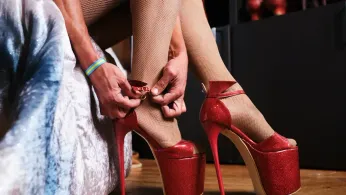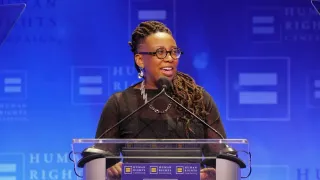
6 hours ago
Crossroads Bar and Grill Sues Alabama Town After Liquor License Denied Over Drag Event
READ TIME: 3 MIN.
The owner of Crossroads Bar and Grill, an LGBTQ+ venue in Alabama, recently filed a lawsuit against its town after being denied both liquor and entertainment licenses. The denial came shortly after the bar publicly advertised an upcoming drag show, an event that is considered central to LGBTQ+ culture and visibility in many communities .
Drag shows have historically provided safe spaces for LGBTQ+ individuals and allies, offering not only entertainment but also a form of self-expression and community support. The refusal of licenses has raised alarm bells among local and national LGBTQ+ advocacy organizations, who argue that such measures amount to discriminatory practices targeting queer spaces .
Key Events and Timeline
- Crossroads Bar and Grill advertised a drag event, attracting attention from both patrons and local authorities.
- Soon after the promotion, the municipality denied the bar’s application for a liquor and entertainment license, effectively preventing the business from serving alcohol and hosting live performances .
- The bar’s owner responded by filing a lawsuit, alleging that the denial was motivated by discrimination against LGBTQ+ individuals and drag performances specifically .
Under Alabama law, the Alabama Department of Revenue and the Alabama Alcoholic Beverage Control (ABC) Board have the authority to revoke or deny liquor licenses for reasons including tax delinquency, violations of state liquor laws, or concerns about public safety . However, advocacy groups and legal experts argue that targeting an establishment solely for hosting drag performances—absent other violations—may constitute unlawful discrimination .
The lawsuit filed by Crossroads Bar and Grill’s owner seeks to challenge the municipality’s decision, citing constitutional protections of free speech and equal protection under the law. The bar’s legal team is expected to argue that drag shows are protected forms of artistic expression and that denying licenses on that basis violates both state and federal anti-discrimination statutes .
The incident has sparked widespread concern among LGBTQ+ advocates, patrons, and allies in Alabama and beyond. Local activists have organized rallies and social media campaigns in support of Crossroads Bar and Grill, calling for greater protections for queer spaces and events. National organizations such as the Human Rights Campaign have condemned the denial, emphasizing the importance of safe, inclusive venues for LGBTQ+ individuals .
Statements from community members highlight the significance of drag shows as a means of celebrating LGBTQ+ identity and fostering acceptance. Many fear that the denial sets a dangerous precedent, potentially emboldening further attempts to restrict queer expression and spaces in other municipalities.
The case of Crossroads Bar and Grill is emblematic of a broader national debate over the rights of LGBTQ+ establishments and performers in the United States. In recent years, legislative and regulatory efforts to restrict drag events, particularly those accessible to youth or held in public venues, have proliferated in several states.
Advocates warn that such policies risk fueling stigmatization and exclusion, undermining progress made toward LGBTQ+ equality and visibility. Legal experts point to the importance of upholding constitutional protections for freedom of expression and association, especially as drag performances grow in cultural prominence and acceptance .
In Alabama, the outcome of the lawsuit will likely have significant ramifications for other LGBTQ+ businesses and events. Should the court find in favor of Crossroads Bar and Grill, it could reinforce the right of queer venues to operate without fear of targeted regulatory action. Conversely, a ruling in favor of the municipality may embolden further restrictions and legal challenges .
Effective July 1, 2025, Alabama enacted Act 2025-413 (SB316), which outlines new regulations for alcohol, tobacco, and THC licensing, including provisions for educational tourism distillery licenses . While these changes do not explicitly target drag events or LGBTQ+ venues, critics argue that ambiguous licensing standards can be exploited to discriminate against marginalized communities.
LGBTQ+ voices in Alabama have underscored the importance of resisting efforts to silence queer culture and expression. Drag artists, venue owners, and allies emphasize the resilience and creativity of the community in the face of adversity. Many are calling for legislative reforms that would explicitly protect LGBTQ+ establishments from discriminatory licensing and regulatory actions.
Nationally, the incident has galvanized conversations about the intersection of business rights, artistic freedom, and LGBTQ+ equality. Advocacy groups continue to monitor the situation, offering legal support and amplifying the voices of those affected by discriminatory policies.
As the lawsuit progresses, the case of Crossroads Bar and Grill will be closely watched by both legal experts and LGBTQ+ advocates. The outcome may shape not only the future of drag events in Alabama, but also the broader landscape of queer visibility and rights throughout the United States .






